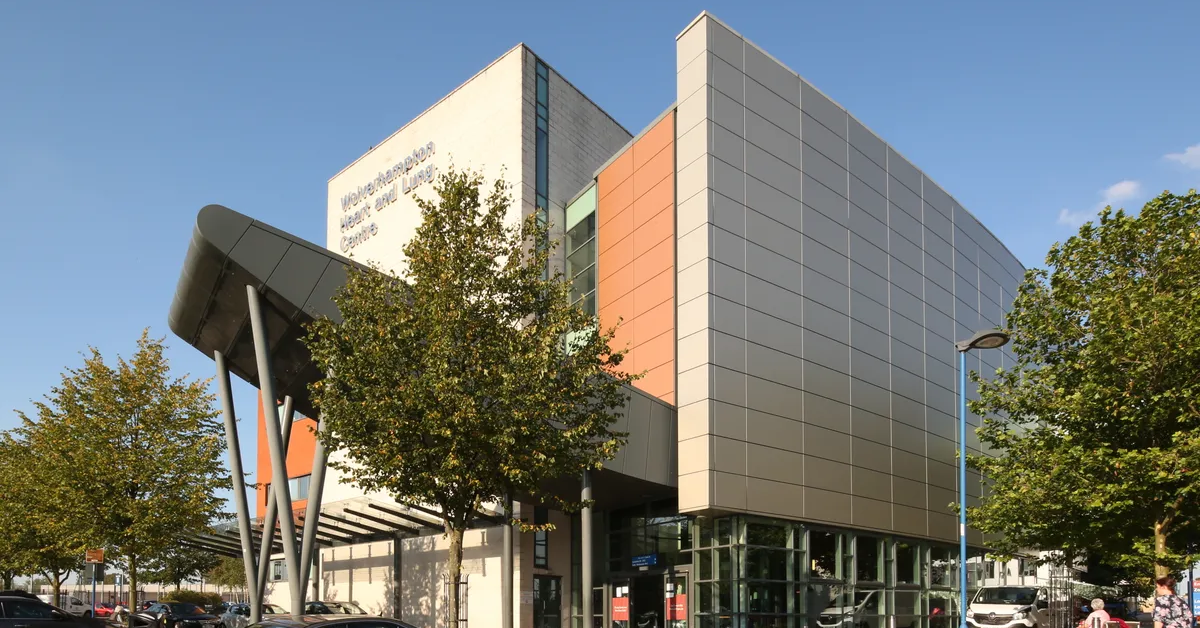
Leading Consultant Neurologist & Neurophysiologist delivering cutting-edge EEG, EMG and bespoke neurological solutions.
Over 20 years’ expertise in epilepsy, Parkinson’s, MS and complex neuro disorders.
certified medico-legal expert and trainee in analytical pshychoptherapy
APPOINTMENTS WITH DR MANFREDONIA
General Neurology
Neurological conditions cover a very wide spectrum, from common headaches to complex diseases that require hospital-based or inpatient care. My practice focuses on those conditions that can be appropriately assessed and managed in an outpatient setting.
This means that if you are experiencing symptoms that are best addressed through outpatient neurological consultation – such as headaches, seizures, movement disorders, memory concerns, neuropathic pain, or suspected nerve and muscle disorders – you may benefit from arranging an appointment.
By contrast, certain acute or complex conditions (such as major strokes, severe head injuries, or rapidly progressive neurological emergencies) require urgent hospital-based treatment and are not suitable for outpatient management.
Setting this distinction helps ensure that patients are directed to the most appropriate service for their needs, avoiding unnecessary delays and allowing the right level of care to be delivered in the right place.
Cerebrovascular
Disorders
- Stroke – Sudden loss of brain function due to ischaemia or haemorrhage.
- Transient Ischaemic Attack (TIA) – Brief neurological dysfunction from temporary loss of blood flow.
- Cerebral Venous Sinus Thrombosis – Thrombosis of dural venous sinuses causing headache, seizures, focal deficits.
- Vascular Malformations (AVMs, cavernomas) – Abnormal vessels in brain/spinal cord, risk of bleeding or seizures.
Epilepsy and Paroxysmal Disorders
- Epilepsy – Chronic disorder with recurrent unprovoked seizures.
- Febrile Seizures – Seizures provoked by fever in children.
- Status Epilepticus – Prolonged or recurrent seizures without recovery, medical emergency.
- Paroxysmal Dyskinesias – Episodic abnormal involuntary movements without loss of consciousness.
Movement Disorders
- Parkinson’s Disease – Hypokinetic disorder from dopamine neuron loss, causing tremor, rigidity, bradykinesia.
- Atypical Parkinsonism (MSA, PSP, CBD, Lewy body dementia) – Parkinsonism with poor levodopa response and early additional features.
- Essential Tremor – Action tremor, typically bilateral, often familial.
- Dystonia – Sustained or intermittent muscle contractions causing abnormal postures.
- Chorea (e.g., Huntington’s disease) – Rapid, irregular, involuntary movements.
- Myoclonus – Sudden, brief shock-like jerks.
- Tics/Tourette’s Syndrome – Repetitive, stereotyped motor or vocal actions.
- Ataxias (hereditary/acquired) – Impaired coordination from cerebellar dysfunction.
Demyelinating and Inflammatory Disorders
- Multiple Sclerosis – Immune-mediated CNS demyelination, relapsing or progressive.
- Neuromyelitis Optica Spectrum Disorder (NMOSD) – Severe optic neuritis and longitudinal myelitis, AQP4 antibody-mediated.
- MOG Antibody Disease – Demyelinating attacks often affecting optic nerves, spinal cord, brainstem.
- Acute Disseminated Encephalomyelitis (ADEM) – Post-infectious demyelination, mainly in children.
- Autoimmune/Paraneoplastic Encephalitis – Limbic or diffuse inflammation, psychiatric and seizure presentations.
Neurodegenerative Disorders
- Dementias – Progressive decline in cognition and function (Alzheimer’s, vascular, Lewy body, frontotemporal, prion).
- Motor Neurone Disease (ALS, PLS, PMA, bulbar palsy) – Progressive motor neuron degeneration causing weakness, wasting, bulbar dysfunction.
- Spinocerebellar Degenerations – Hereditary or sporadic syndromes with progressive ataxia and cerebellar signs.
Headache and Pain Disorders
- Migraine – Episodic throbbing headache ± aura, nausea, photophobia.
- Tension-Type Headache – Band-like, pressure-type, often stress-related.
- Cluster Headache & TACs – Severe unilateral orbital pain with autonomic features.
- Trigeminal Neuralgia – Sudden, brief, shock-like facial pain.
- Persistent Idiopathic Facial Pain – Constant poorly localised facial pain without nerve injury.
- Secondary Headaches – Due to raised ICP, trauma, infection, or medication overuse.
Neuromuscular Junction Disorders
- Myasthenia Gravis – Autoimmune, fatigable weakness (ocular, bulbar, limb).
- Lambert-Eaton Myasthenic Syndrome (LEMS) – Paraneoplastic/autoimmune, proximal weakness improving with activity.
- Congenital Myasthenic Syndromes – Genetic defects of neuromuscular transmission.
Peripheral Nerve Disorders
- Polyneuropathies – Symmetrical nerve damage (diabetic, alcoholic, toxic, hereditary CMT).
- Mononeuropathies – Single nerve injury (carpal tunnel, ulnar neuropathy, peroneal palsy).
- Radiculopathies – Root compression (cervical/lumbar disc disease).
- Plexopathies – Brachial/lumbosacral plexus lesions.
- Guillain-Barré Syndrome (GBS) – Acute inflammatory demyelinating neuropathy with ascending weakness.
- Chronic Inflammatory Demyelinating Polyneuropathy (CIDP) – Chronic GBS-like neuropathy with relapsing/progressive course.
Muscle Disorders (Myopathies)
- Muscular Dystrophies – Inherited progressive weakness (Duchenne, Becker, limb-girdle, FSH, myotonic dystrophy).
- Congenital Myopathies – Early-onset weakness, hypotonia (nemaline, central core).
- Inflammatory Myopathies – Autoimmune muscle inflammation (polymyositis, dermatomyositis, inclusion body myositis).
- Metabolic Myopathies – Exercise-induced weakness (glycogen, lipid, mitochondrial disorders).
- Endocrine Myopathies – Weakness due to thyroid, adrenal, or steroid excess.
Spinal Cord Disorders
- Traumatic Injury – Acute paralysis, sensory loss below lesion.
- Compressive Myelopathies – Cord compression from disc, tumour, abscess.
- Non-compressive Myelopathies – Inflammation, vascular disease, metabolic deficiency (B12).
- Hereditary Spastic Paraplegia – Progressive spastic gait from corticospinal tract degeneration.
Infections of the Nervous System
- Meningitis – Inflammation of meninges (bacterial, viral, TB, fungal).
- Encephalitis – Brain inflammation (HSV, autoimmune).
- Brain Abscess – Localised collection of pus in brain.
- Neuro-HIV – Opportunistic infections, HIV encephalopathy.
- Prion Diseases (CJD) – Rapidly progressive dementia with myoclonus.
Metabolic, Toxic, and Systemic Disorders
- Metabolic Encephalopathies – Confusion, coma from hepatic, renal, electrolyte causes.
- Toxic Encephalopathies – Neurological dysfunction from alcohol, drugs, heavy metals.
- Mitochondrial Disorders – Multisystem, often stroke-like episodes, myopathy.
- Leukodystrophies – Genetic disorders of myelin metabolism.
Brain and Spinal Tumours
- Gliomas (astrocytomas, GBM, oligodendrogliomas) – Primary malignant brain tumours.
- Meningiomas – Usually benign extra-axial tumours.
- Pituitary Tumours – Hormone-secreting or non-functioning sellar lesions.
- Primary CNS Lymphoma – Aggressive brain lymphoma, often immunosuppressed.
- Spinal Tumours – Intramedullary, extramedullary, or extradural lesions causing cord compression.
Functional Neurological Disorders (FND)
- Functional Motor Symptoms – Weakness, gait disturbance not explained by structural disease.
- Functional Seizures (PNES) – Seizure-like events without epileptiform activity.
- Functional Sensory Symptoms – Numbness, visual loss, inconsistent with neuroanatomy.
About
Dr Francesco Manfredonia
I have been working as a Neurology Consultant since 2007 and have served as Clinical Director for the Neurology and Neurophysiology Department at the Royal Wolverhampton NHS Trust since 2017.
I also have a special interest in Epilepsy.
I trained in both Italy and the United Kingdom and hold Specialist Register status with licenses to practice in both countries. My work combines clinical responsibilities with managerial and educational activities.

Lead of the Epilepsy Service Royal Wolverhampton NHS Trust

Senior Editor of the scientific journal Clinical Case Reports
View Journal

Neurology SCE Resource Editor for the learning platform Learna
Visit Platform
AREA OF EXPERTISE
Epilepsy
Recurrent seizures caused by abnormal electrical activity in the brain demand individualized pharmacological and lifestyle strategies to achieve optimal seizure control and quality of life.
Neurophysiology
Comprehensive assessment of the nervous system’s electrical signals—from brain waves to nerve conduction—provides critical insights into neurological function and guides targeted treatment decisions.
Neuromuscular Conditions
Disorders affecting nerves and muscles—such as peripheral neuropathies and myopathies—manifest as weakness, pain or sensory loss, requiring integrated diagnostic and rehabilitative approaches.
Extensive Experience In
Sleep disorders
Leveraging a two-decade record of leadership in multidisciplinary sleep clinics, Dr Mandfedonia has performed advanced polysomnography, developed bespoke CBT-I programmes and fine-tuned CPAP protocols to help hundreds of patients reclaim restorative sleep.
Neuropathy
Drawing on his deep neurophysiology expertise, Dr Francesco Manfredonia has conducted thousands of nerve conduction studies, driven pioneering research in diabetic and idiopathic neuropathies, and crafted personalised rehabilitation plans that reliably alleviate pain and restore sensation.
CLINICS
PRIMARY CLINIC

Midland Health – Francis Road Clinic
78–79 Francis Road
Edgbaston
B16 8SP

New Cross Hospital
Wolverhampton
WV1 0QP
Private Outpatient Service

Beechwood House Medical Centre
7 Summerfield Road
Wolverhampton
WV1 4PR
We accept insured and self paying patients



